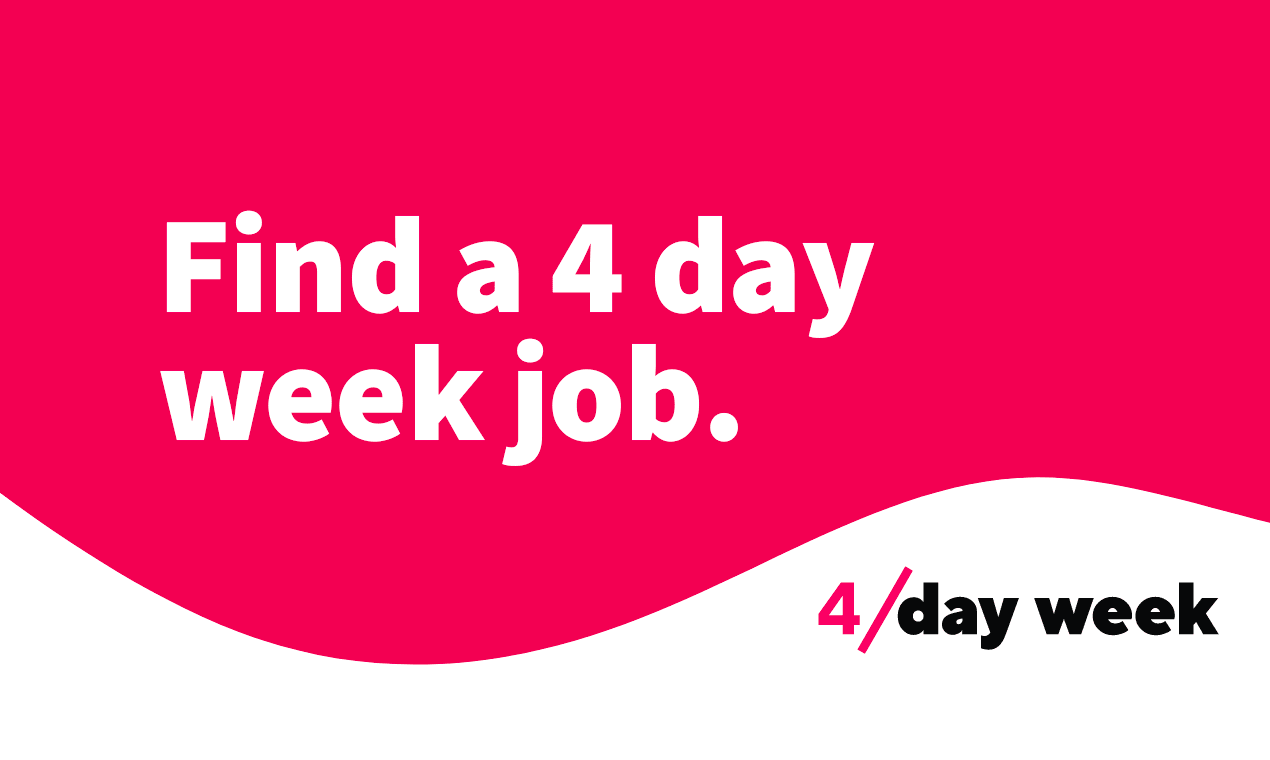1 - What is the 4 Day Work Week?
2 - Benefits of the 4-Day Work Week
3 - What do we do with our 5th Day?
What is the 4-Day Work Week?
In various global surveys, Denmark often ranks highly for the happiest inhabitants. It is notable they have a 4-day working week for many workers. In another happy, prosperous nation – The Netherlands – the average working week is 29 hours. We've written in further detail on what it is, and what the pros and cons are here.
Other countries have recently begun following suit with government-sponsored trials or individual organisations taking the initiative. It's become such a popular incentive for workers, that job boards such as 4dayweek.io have even been set up for jobseekers who see it as a priority.

Benefits of the 4-Day Week
A study by Henley Business School and Harvard Business Review learnt that employee satisfaction has improved, employee sickness has reduced, and savings of almost £92 billion (around 2% of total turnover) are being made each year.
In organizations in which a shorter workweek has been implemented, nearly two-thirds (64%) of leaders reported increases in staff productivity and work quality due to a reduction of sick days and overall increased well-being.
-2.png?width=1600&name=Post%20(4)-2.png)
Among workers, 77% identified a clear link between the four-day week and better quality of life. The practice is judged particularly attractive by 75% of the Gen Z and Gen X people surveyed — and rather than relaxing, they’re using their additional time to upskill, volunteer, and build side hustles.
This last statistic raises a couple of points:
- Employers need to consider this as a tool for attracting applicants to fill their increasing (and hard-to-fill) vacancies.
- Other than ‘not working,’ what positive use could be gained from the 5th day?
What should we do with the 5th Day?
Upskill workers
This is one course of action that is both attractive to employees and employers and could provide a more realistic scenario for bosses. With unemployment at record lows and vacancies at record highs in 2022, internal mobility needs to be a key strategy for companies, be that lateral movement of staff or upward promotion.
With global social and economic events forcing the need for continued rapid adaptability, upskilling – or cross-skilling - of employees should be a crucial part of an employer’s strategy and high on their list of priorities.
.jpg?width=1920&name=Where%20are%20candidates%20searching%20for%20jobs%20(1).jpg)
There are significant benefits for employees too. It can be personally enriching, both in terms of their growth as a person and professional, and the access to high-paying jobs that may come from it. In fact, Jobtrain’s recent market trends report reveals that 50% of all applicants are looking to move job for better career or promotion opportunities. It may also help them adapt to the ever-shifting growth and retraction of different industries, making them more ‘redundancy-proof’.
Encourage volunteer work
Volunteering can often give people a new sense of purpose away from the day job, and allow them to take on responsibilities or demonstrate skills and qualities not afforded by the rigidity of their normal job or company structure. It can increase confidence, social skills, and technical skills and new methods.
.jpg?width=3000&name=katt-yukawa-K0E6E0a0R3A-unsplash%20(1).jpg)
This type of personal development can be beneficial to employers if their employees go on to channel that personal growth into their day job. Perhaps - more cynically - there might be a positive PR benefit from employees volunteering their efforts, especially if they are for schemes or charities to which the company is aligned.
Build side hustles
A side hustle is simply a paid or unpaid role outside of one’s full-time career. It is normal to Gen Zs or Millennials, but perhaps alien to those of previous generations.
In fact, many full-time permanent employment contracts have yet to adapt to this modern phenomenon, and may still include clauses prohibiting or discouraging second jobs. Some seasoned HR professionals may counter that this helps compliance with the Working Time Directive designed to prevent workers being made to work too many hours. True, but this younger generation see the world differently.
They want to choose what they do and when they do it. They don’t recognise the format of Monday to Friday 9 – 5. They are 24/7 blending work and leisure with no stark boundaries. They may choose to work 70 hours or 20 hours. They do so on their own terms, and hey; they may just be the next ".com billionaire."
Rather than being worried, employers should embrace this new breed of worker, and adapt their practices accordingly.
Whether that’s contracts, flexible hours and locations for work, and technology to support it. Like the benefits of volunteering, they will bring with them a wider range of technical skills, people skills, ideas and problem-solving. They typically are highly motivated and great at time management, resulting in very high productivity.
So, before just assuming a 4 day week means an extra day of rest and the downing of tools, look at it as an opportunity to update and sharpen your workforce.